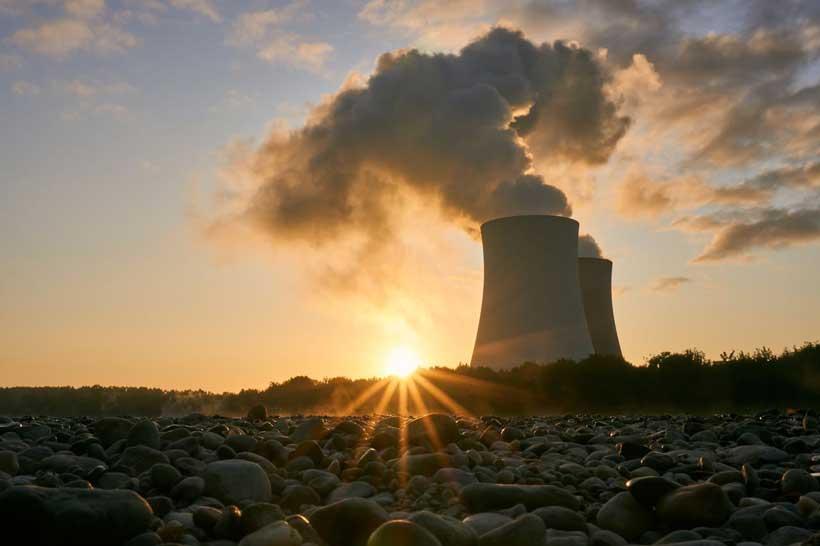By
Hafsa Azam
Africa-Press – Mauritius. According to United Nations Development Programme, the world is battling existential threat posed by climate change. 2024 has experienced record-breaking temperatures that have exceeded the previous highs set in 2023. This trend indicates that each year is getting hotter than the previous one. The most alarming prediction is that during the next five years, there will be nearly 50% possibility of increase in the average world temperature rising over 1.5°C. Given the seriousness of the current climate crisis, it is important to rethink our assumptions and appreciate nuclear power’s potential as a crucial link towards sustainable energy future. Nuclear energy serves as an effective tool in fighting against climate change as it offers both credible and low-carbon alternatives to traditional fossil fuels. It is therefore an indispensable part of the global energy mix.
For the first time in the history, nuclear energy was on the agenda of the 28th World Climate Summit Conference of Parties (COP28) held in UAE in December 2023. The “Declaration of Triple Nuclear Energy,” signed by 22 countries during the Conference, recognizes that nuclear energy will play a critical role in achieving net-zero global greenhouse gas emissions by 2050.
According to IAEA, currently there are 32 countries operating 440 Nuclear Power Plants (NPPs) providing about 390 GWe to the global energy mix. The US, UK, France and UAE are among the nations that are actively pursuing plans to augment their nuclear energy capacity. In the US, 94 nuclear reactors are generating approximately 96,954 MWe, contributing 19% of the total energy mix. In some states of the US, Zero-Emission Credit (ZEC) payments are provided to NPPs to recognize their environmental benefits. These ZECs function similar to production tax credits for wind energy, though at a lower rate and are based on the estimated reduction of emissions.
In the UK, nine nuclear reactors are producing around 5,883 MWe, contributing 10% of the total energy mix. The UK aims to produce up to 24 GWe of nuclear power by 2050, which would provide around 25% of the country’s electricity needs. France has one of the largest clean energy programs in all of Europe. 56 nuclear reactors operating in France are generating about 61,370 MWe, contributing 70% of the total energy mix. In the UAE, four NPPs are generating approximately 5,348 MWe, contributing 7% of the total energy mix.
China’s nuclear industry is expanding quickly, with 27 new reactors being constructed to add to the country’s 56 already in operation. China plans to construct six to eight new NPPs annually and by 2030 it will produce more electricity from nuclear energy than the US. Furthermore, China started operating the 200 MWe gas-cooled Shidaowan-1 nuclear plant in the country’s northern Shandong province in December 2023, making it the world’s first fourth-generation NPP. According to Nuclear Energy Administration of China, 90% of the technology in the new plant was developed within China.
According to International Atomic Energy Agency (IAEA), “timely, significant and sustained investments in nuclear energy are required to meet the goal of having net-zero carbon emissions worldwide by 2050”. The IAEA launched the “Atoms4NetZero” initiative in 2022 for recognizing the importance of nuclear energy in meeting climate targets.
The Director General of IAEA Rafael Mariano Grossi, sharing IAEA’s perspective on nuclear energy with the members of the World Bank Group Executive Board in Washington on 27 June 2024 underscored, “The IAEA offers technical expertise to help establish safe, secure and sustainable nuclear power program, but financing remains a hurdle. Multilateral development banks such as the World Bank can advance sustainable development by assessing nuclear project bankability and contributing lending at affordable rates.”
According to Mikhail Chudakov, Deputy Director General and Head of IAEA’s Department of Nuclear Energy, there is a requirement of investment of USD 3 trillion in new NPPs in the next 25 years. At present, nuclear energy contribution to the global energy mix is 9-10%. Although new power plants are being added, due to decommissioning of old plants, the net effect remains the same. In order to achieve net-zero by 2050, we should increase nuclear energy contribution to 25%.
It is essential to recognize that the nuclear sector has achieved significant progress in terms of safety procedures, reactor architecture and technology for managing waste. Modern nuclear reactors use passive cooling techniques and multiple safety measures to make them safer than before. Furthermore, even higher safety and efficiency are promised by advanced reactor designs, such as Small Modular Reactors (SMRs). SMRs have a 300 MWe maximum output and 7.2 million KWh of daily production capacity.
Pakistan’s energy mix consists of nuclear energy, renewable energy sources and fossil fuels. According to the Economic Survey of Pakistan (2023), the energy mix of Pakistan in 2022-2023 comprised 58.8% thermal power, 25.8% hydroelectric power, 8.6% nuclear energy and 6.8% from other sources.
Currently six NPPs are operating in Pakistan, two in Karachi K-2 and K-3 having the capacity of 1,100 MWe each and four at the Chashma: C-1 of 325 MWe, C-2 of 330 MWe and C-3 and C-4 having the capacity of 340 MWe each. Agreement for C-5 with 1200 MWe capacity was signed between Pakistan and China with the aim of increasing the NPPs power generation capacity from 3,530 MWe to 4,730 MWe.
Pakistan plans to build 32 NPPs with a total capacity of 44,000 MWe which would account for one-fourth of country’s energy needs under its Nuclear Energy Vision 2050. For the implementation of this vision, Pakistan needs to further strengthen its cooperation with China and explore public-private partnerships, as this requires funding for new NPPs. This will help Pakistan in lowering its dependency on fossil fuels and mitigating climate change.
As nuclear energy is affordable, clean, reliable and a low-carbon alternative to fossil fuels, it can provide an efficient solution to Pakistan’s energy needs and also help address foreign exchange crisis.
moderndiplomacy
For More News And Analysis About Mauritius Follow Africa-Press







